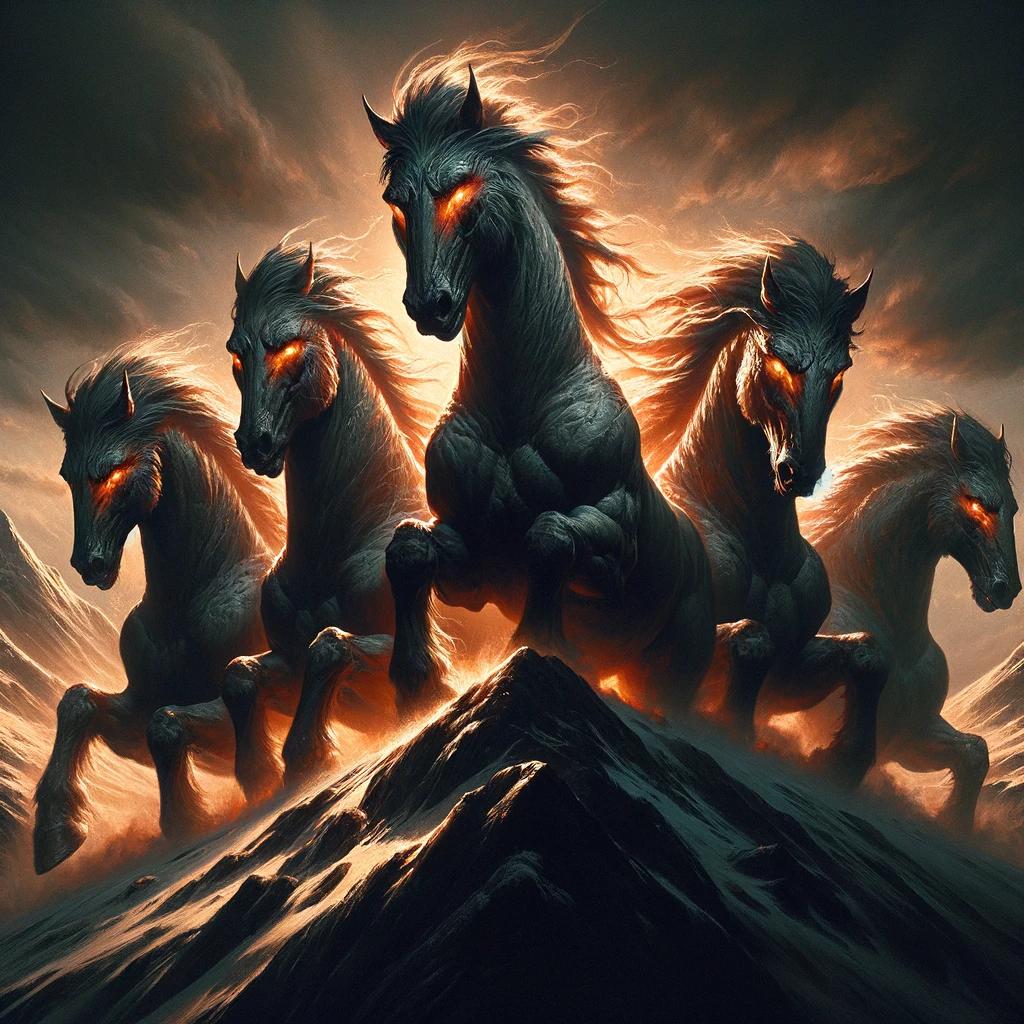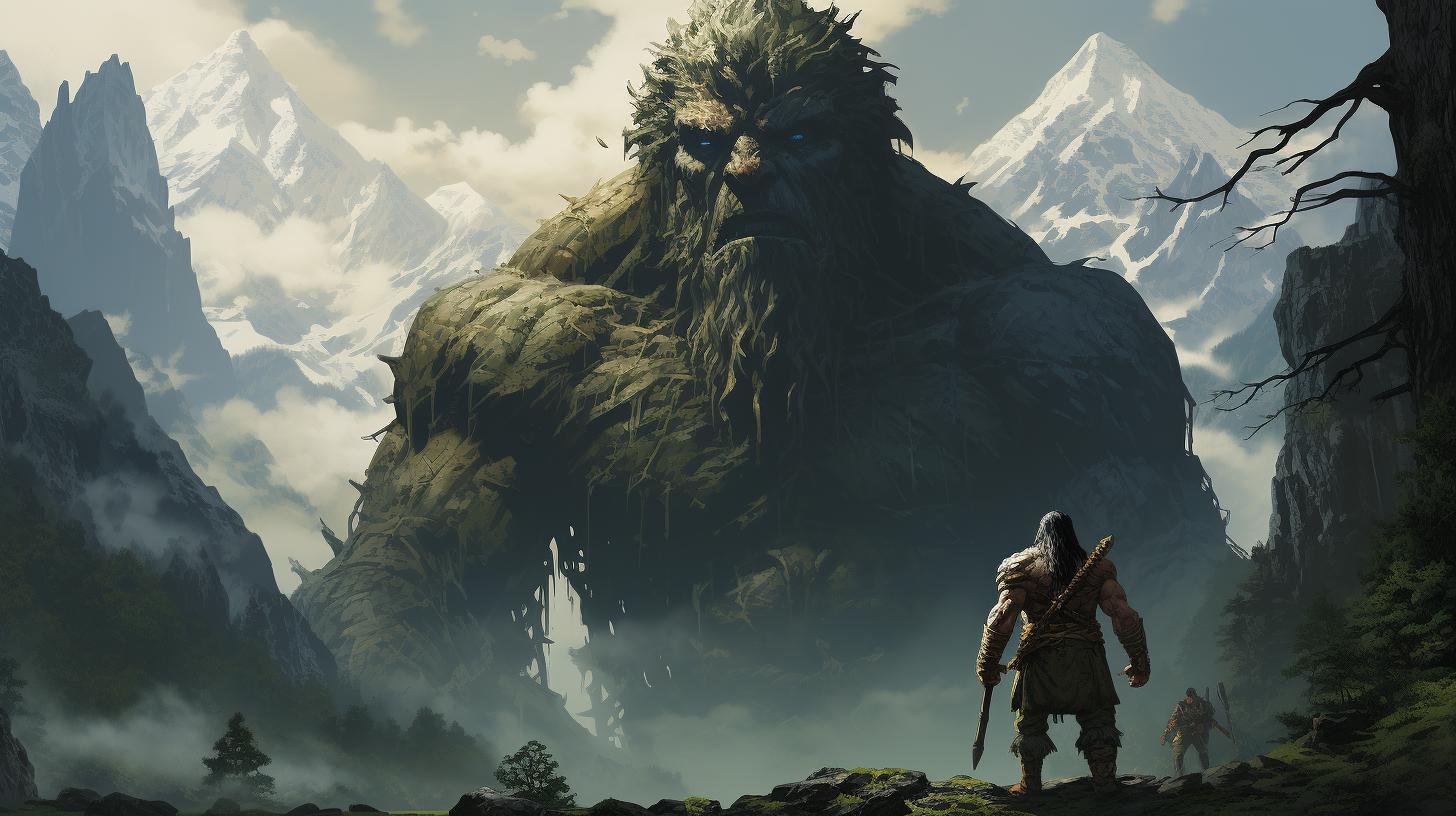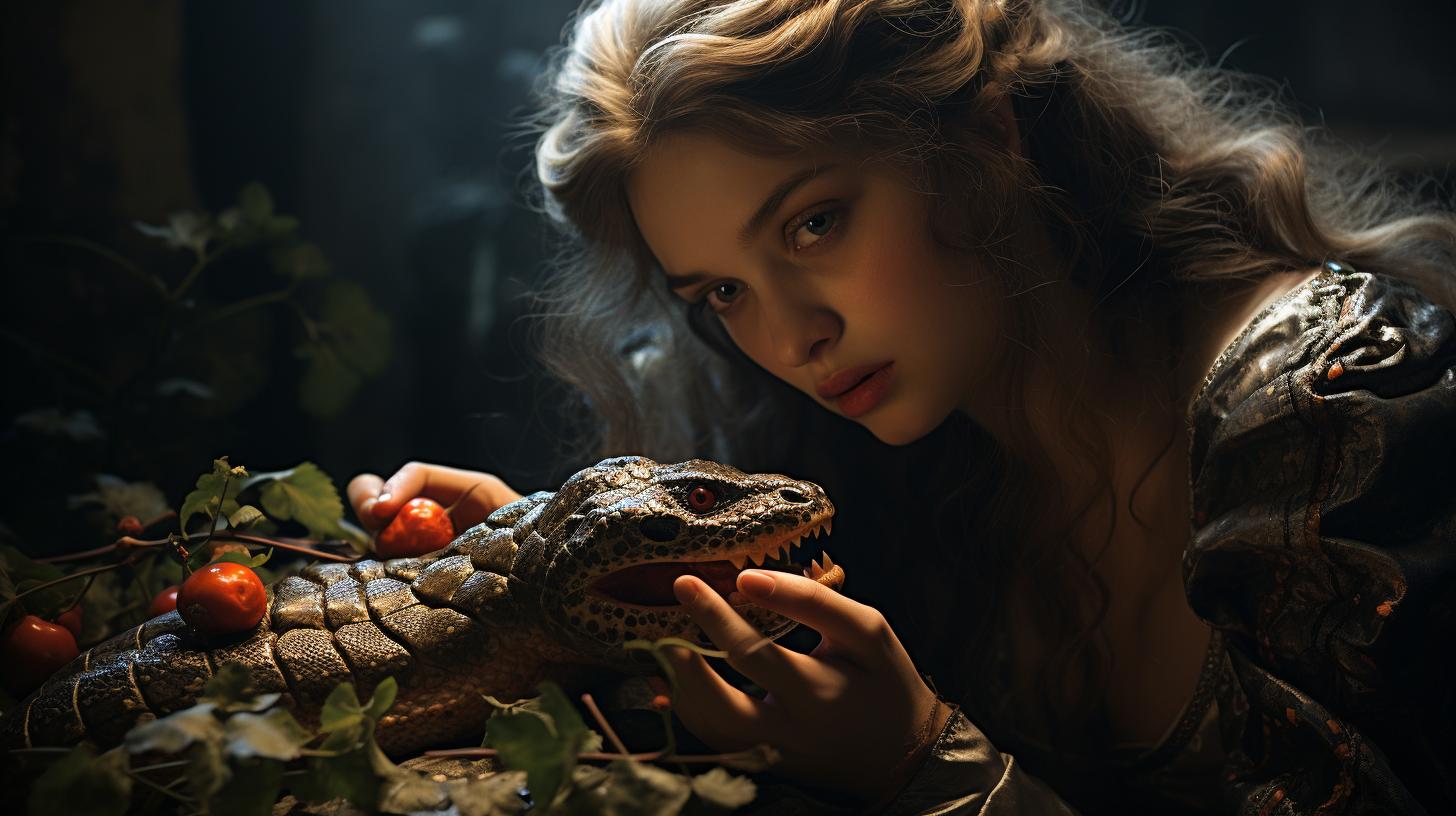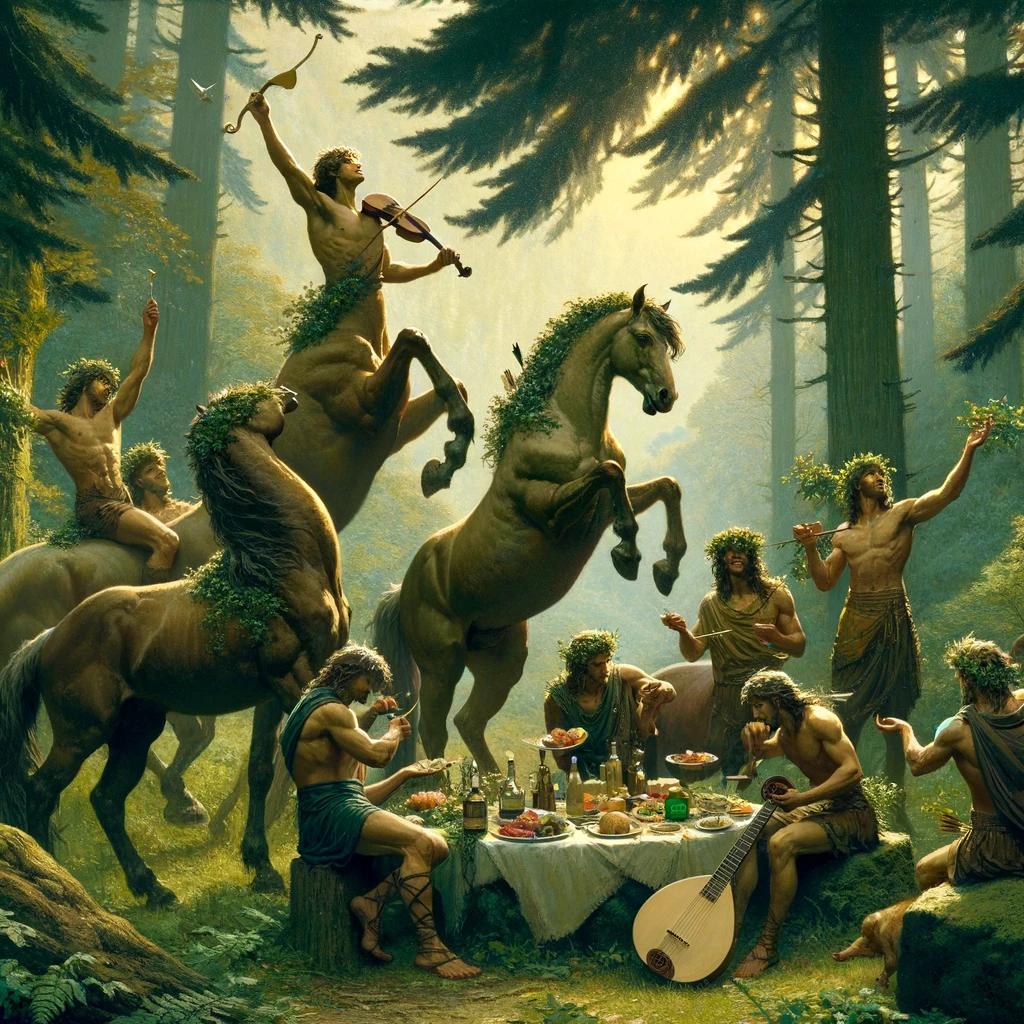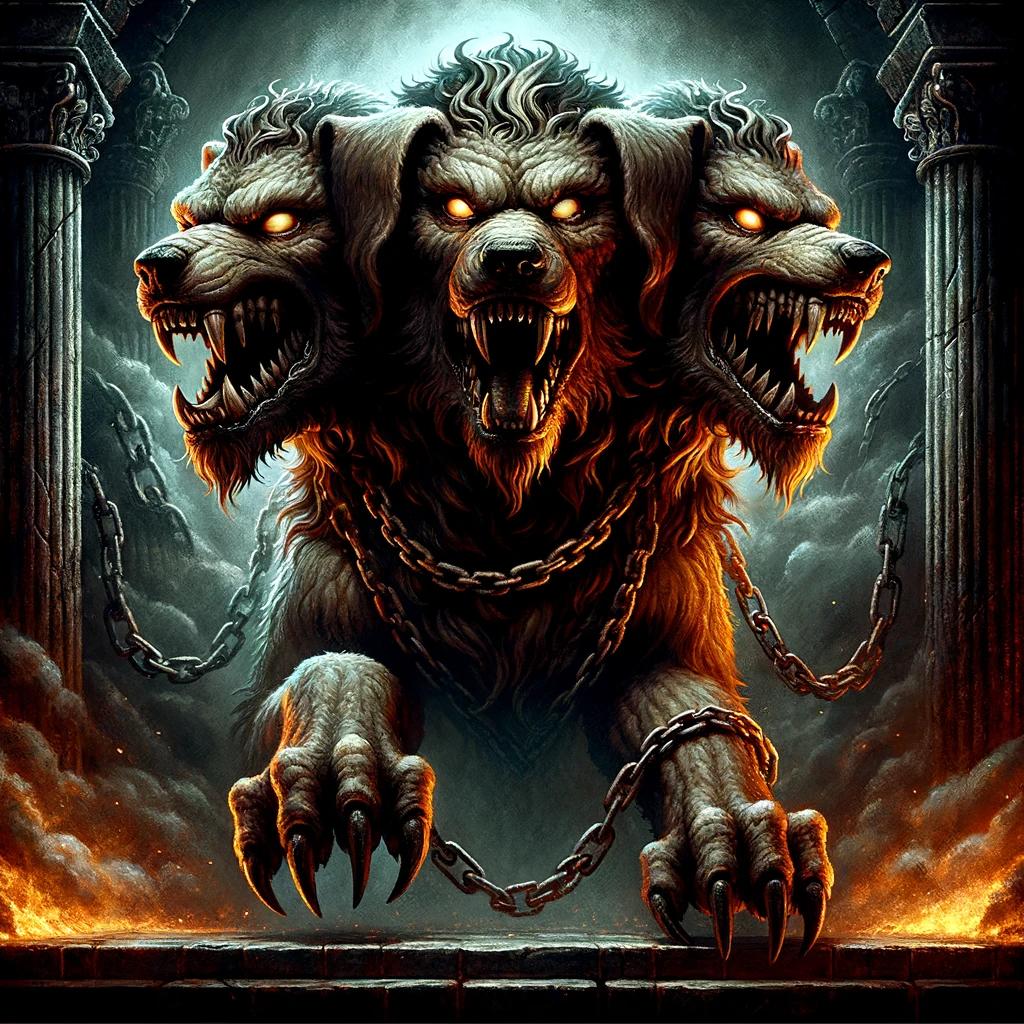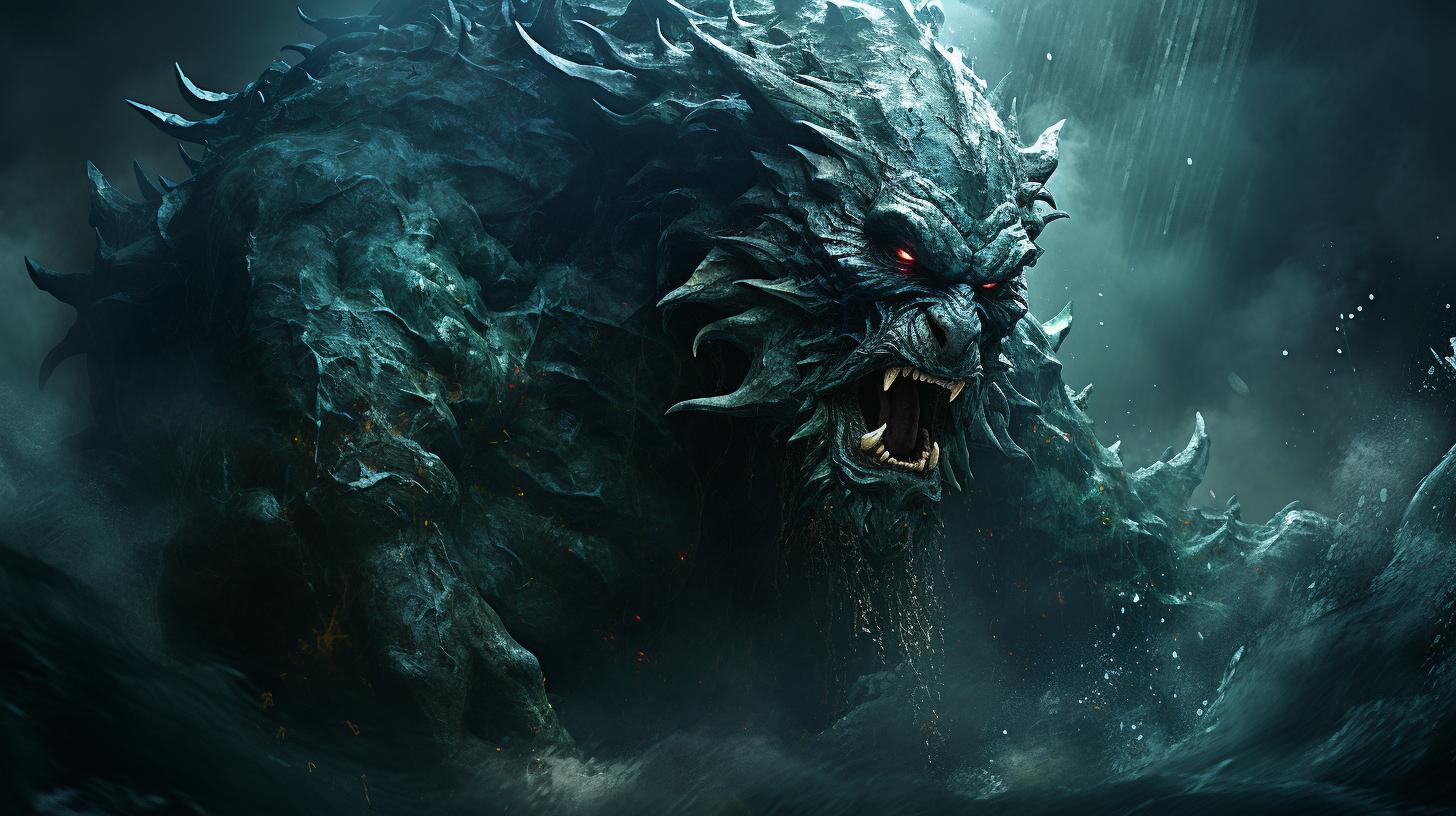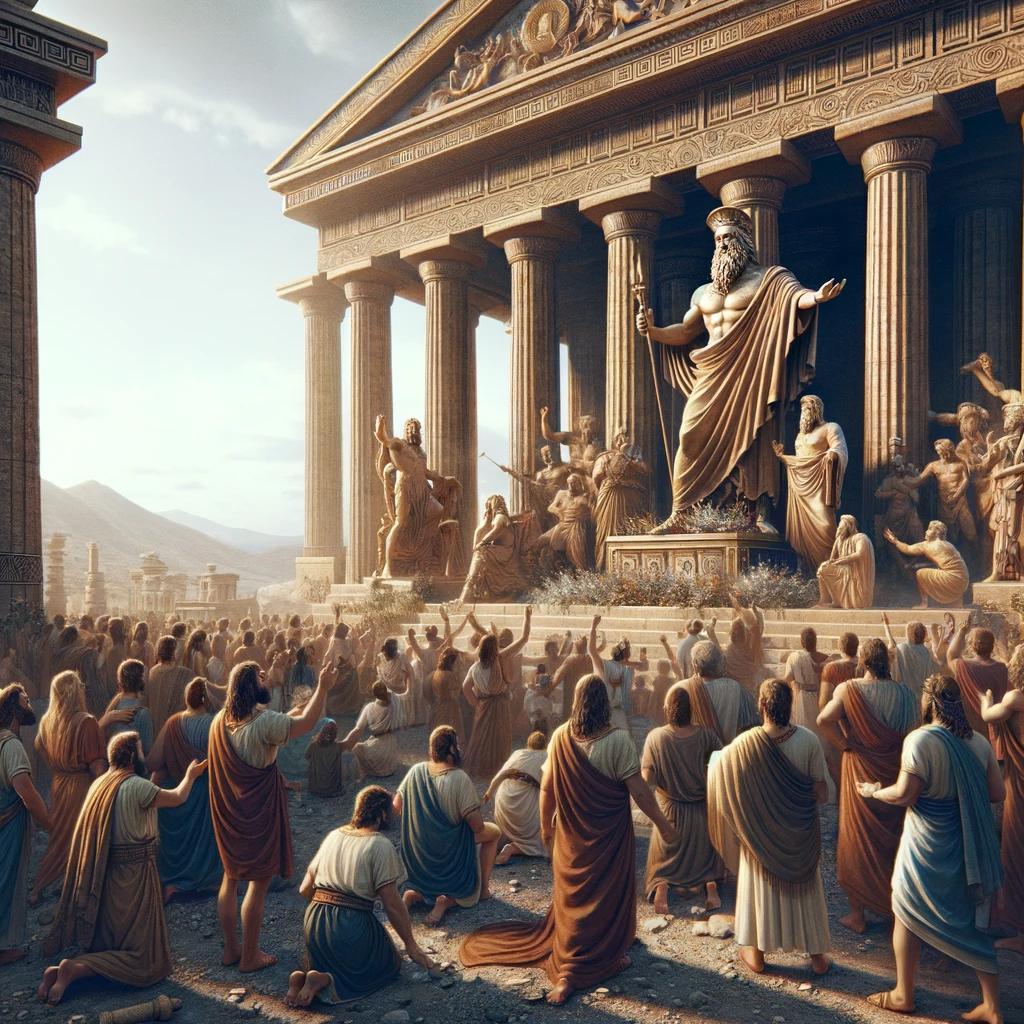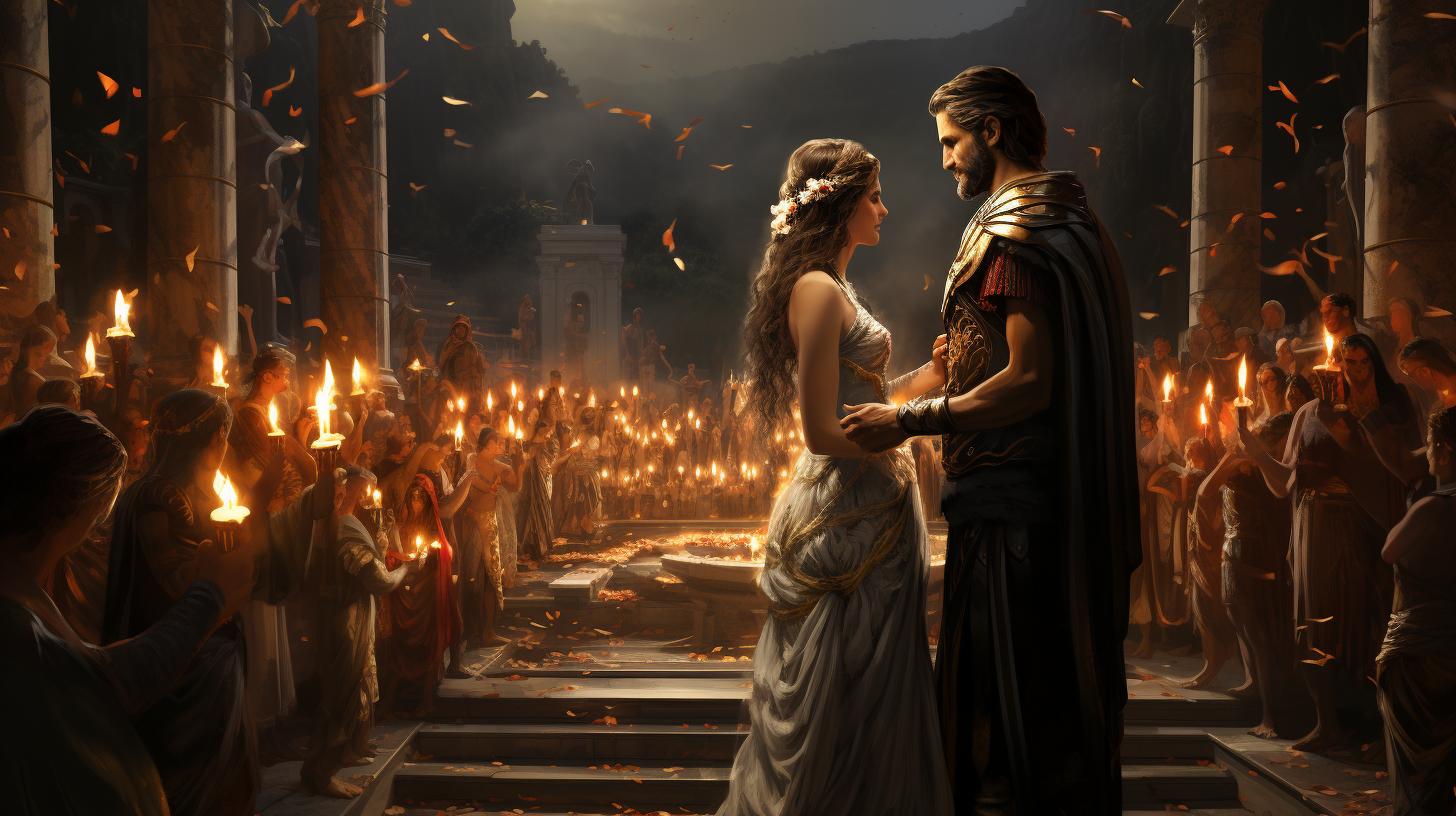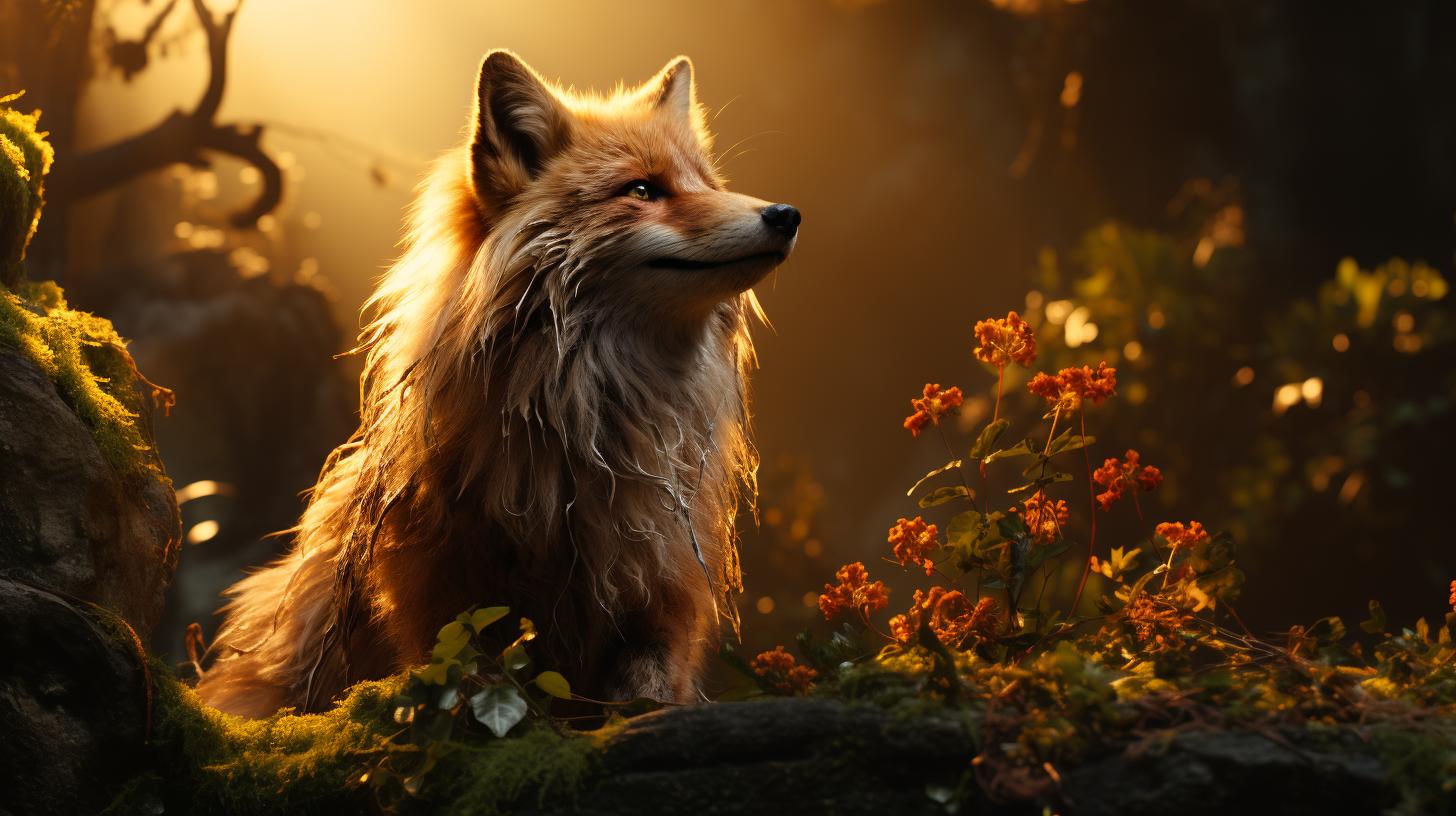Mares of Diomedes: Mythical Tales of Ferocious Horses in Greek Mythology
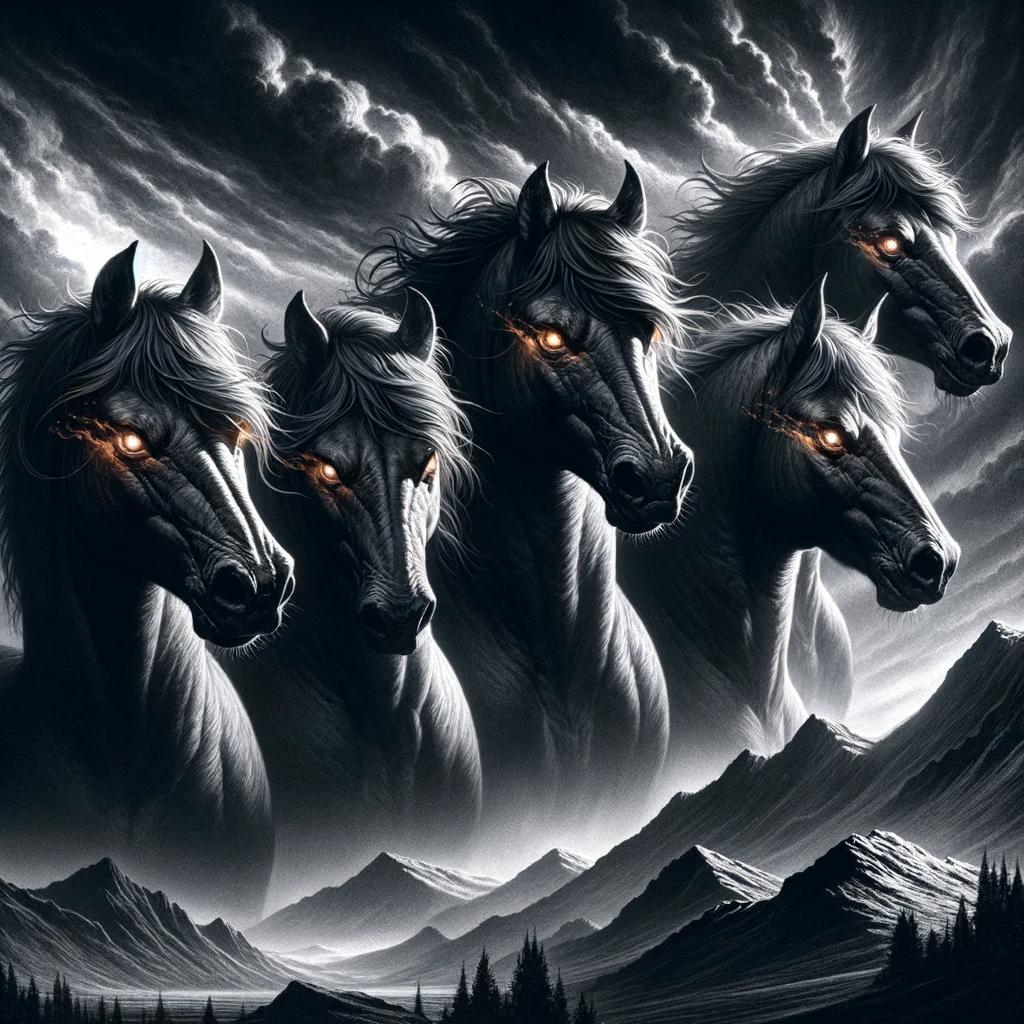
The Mares of Diomedes, a captivating tale from Greek mythology, tells the story of King Diomedes and his ferocious man-eating horses. Originating from Tracia, Diomedes’ horses were known for their wild and uncontrollable nature, feeding on human flesh instead of ordinary food.
Heracles was assigned the challenging task of capturing these fierce creatures as part of his legendary labors. The myth unfolds with tragic events and heroic endeavors, showcasing the symbolism and influence of this captivating myth in art, literature, and the constellations.
Explore the depths of this mythical legend and its lasting impact in Greek mythology and culture.
The Mythical Tale of Mares of Diomedes in Greek Mythology
The Mares of Diomedes is a captivating myth rooted in Greek mythology, recounting the extraordinary story of King Diomedes and his fearsome horses. This mythical tale unveils a world of ancient legends and legendary quests, showcasing the heroic feats of renowned Greek hero Heracles.
Origins and Background of Diomedes
Diomedes, the central figure of this myth, was a barbarian king hailing from the Bistones tribe in Thrace.
According to some accounts, he was the son of Ares and Cyrene, while others suggest that he was the offspring of Atlas and Asteria, his own daughter. The lineage of Diomedes adds intrigue and complex familial connections to the narrative.
Diomedes: The King and his Horses
Diomedes was known for his unruly and uncontrollable mares that possessed a ferocious appetite for human flesh, eschewing natural sustenance. These wild and savage creatures were confined with bronze mangers and secured with iron chains, a testament to their immense strength and violent nature.
These horses, feared by all who encountered them, became an integral part of Diomedes’ identity, showcasing his authority as a king and the formidable challenges faced by anyone attempting to tame or capture them.
The Man-Eating Horses of Diomedes: A Terrifying Legend
The myth of the Mares of Diomedes in Greek mythology revolves around the terrifying and savage nature of King Diomedes’ horses. These man-eating creatures were known for their ferocity and uncontrollable behavior, feeding on human flesh instead of natural food.
Description and Characteristics of the Mares
The Mares of Diomedes were infamous for their wildness and strength. They were said to possess untamed and fierce spirits, making them incredibly challenging to control. These horses were often depicted with bronze mangers and were bound with iron chains to contain their power.
Feeding Habits: Devouring Human Flesh
One of the most chilling aspects of the Mares of Diomedes was their insatiable appetite for human flesh. Instead of consuming regular food, they relished the taste of flesh, attacking and devouring any unfortunate individuals who crossed their path.
This gruesome characteristic added to the terrifying reputation of these horses.
The legend of the Mares of Diomedes stands as a testament to the fearsome power and danger associated with these mythical creatures.
Their description and feeding habits contribute to the overall terrifying nature of this Greek myth.
Heracles and the Eighth Labor: Capturing the Mares
The eighth labor assigned to Heracles was the daunting task of capturing the man-eating horses of Diomedes, a feat that showcased his extraordinary strength and courage. This section delves into the heroic quest undertaken by Heracles to subdue these ferocious creatures, as well as the tragic fate of his loyal companion, Abderus.
The Heroic Quest Begins
Heracles embarked on his perilous journey to face King Diomedes and his savage horses, armed with his unmatched bravery and determination. This subtopic explores the challenges Heracles encountered on his mission, highlighting the reckless nature of the mares and the immense effort required to confront them.
Abderus: The Tragic Fate of Heracles’ Companion
A heartbreaking turn of events took place during Heracles’ encounter with the mares. Abderus, Heracles’ young and trusted companion, met a tragic end at the jaws of these ravenous creatures.
This section sheds light on the sorrowful demise of Abderus and the impact it had on Heracles’ determination to exact vengeance.
Vengeance and Retribution
In his rage and grief over the loss of Abderus, Heracles sought retribution against Diomedes for his heinous act. This subtopic delves into the intense battle between Heracles and Diomedes, depicting the ultimate fate of the king and the poetic justice that unfolded as Heracles fed Diomedes’ own body to the man-eating mares.
Variations and Versions of the Myth
The myth of the Mares of Diomedes has been adapted and retold in various versions, incorporating different characters and details. These variations add depth and complexity to the story, highlighting the enduring nature of Greek mythology.
Pyraikhmes of Eubea and his Encounter
One notable variation involves Pyraikhmes of Eubea, who also encountered the man-eating horses of Diomedes. This alternative version of the myth introduces a different hero who faces the daunting task of capturing and taming the ferocious beasts.
Genealogical Discrepancies: Parents and Origins of Diomedes
The genealogy of Diomedes is a subject of debate and inconsistency in different accounts. While some accounts claim that Diomedes is the son of Ares and Cyrene, others suggest a different parentage.
One alternative version asserts that he is the son of Atlas and his own daughter Asteria, adding a fascinating twist to his lineage.
This mythical tale continues to evolve and adapt in various retellings, offering diverse interpretations and explorations of the Mares of Diomedes and the characters involved.
Depictions in Art and Literature
The mythical tale of the Mares of Diomedes has inspired numerous artistic representations that showcase the themes, imagery, and symbolism associated with this captivating Greek myth.
Artistic Representations: Thematic Imagery and Symbolism
The artistic interpretations of the Mares of Diomedes often portray the intense struggle between Heracles and the powerful horses.
These depictions highlight the wild and fierce nature of the creatures, emphasizing their untamed strength and danger. Artists utilize dramatic compositions, bold colors, and dynamic imagery to convey the violent clash between man and beast.
Symbolism plays a significant role in these artistic representations, with elements such as chains, bronze mangers, and iron restraints symbolizing the unstoppable strength and ferocity of the mares. Additionally, the use of contrasting colors, such as red and black, represents the duality of life and death, highlighting the gruesome nature of the horses’ hunger for human flesh.
Influence on Constellations: Pegasus and its Transformations
The legend of the Mares of Diomedes has left its mark on the constellation of Pegasus. Originally believed to represent the four maleficent horses, Pegasus later transformed into the iconic winged horse.
This transformation is attributed to the myth of the Mares of Diomedes, as the bright stars forming the constellation were seen as wild and malevolent.
According to the myth, Heracles created a river around the horses’ stable, and the resulting celestial waters gave birth to the magnificent Pegasus. This connection between the Mares of Diomedes and Pegasus showcases the enduring influence of the mythical tale on celestial symbolism and astronomical lore.
Bucéfalo: The Descendant of the Mares in History
An intriguing historical connection exists between the Mares of Diomedes and the renowned steed Bucéfalo, owned by Alexander the Great. It is believed that Bucéfalo was a descendant or had lineage ties to the man-eating horses.
The fearsome reputation and extraordinary abilities of Bucéfalo mirrored those of the Mares of Diomedes. This connection further emphasizes the lasting impact of the myth, as it influenced not only artistic and celestial depictions but also historical narratives and legends surrounding remarkable horses in different cultural contexts.
Legacy and Significance in Greek Mythology
The myth of the Mares of Diomedes holds a significant place in Greek mythology, leaving behind a lasting legacy and influencing various aspects of cultural and literary traditions. This section explores the role of Diomedes and his horses as powerful symbols and their impact on classical literature and mythological traditions.
The Role of Diomedes and his Horses as Symbols
Diomedes and his man-eating horses embody various symbolic meanings in Greek mythology. They represent the untamed forces of nature, the brutality and inherent savagery within humanity, and the destructive consequences of uncontrolled power.
Diomedes himself represents the dangerous and unpredictable aspects of rulership, illustrating the delicate balance between strength and madness.
Furthermore, the horses symbolize the uncontrollable desires and appetites that can consume individuals and societies.
They serve as a cautionary tale, reminding us of the destructive consequences that arise when these primal instincts are left unchecked.
Impact on Classical Literature and Mythological Traditions
The legend of the Mares of Diomedes has left a profound impact on classical literature and mythological traditions. It has served as a source of inspiration for numerous writers and artists throughout history, shaping their creative works.
In literature, this myth has been referenced and alluded to in various works, exploring themes of power, heroism, and the frailty of human nature. It has influenced the writings of renowned authors, such as William Shakespeare, who drew upon the symbolism and themes associated with Diomedes and his horses in his plays.
Moreover, the myth has contributed to the development of mythological traditions and the portrayal of mythical creatures. It has shaped the archetype of ferocious and untamed horses in ancient Greek mythology, paving the way for the depiction of similar creatures in later mythological tales and lore.
Conclusion
The legacy and significance of the Mares of Diomedes in Greek mythology cannot be understated. Through their symbolic representation and influence on cultural and literary traditions, Diomedes and his man-eating horses continue to resonate with audiences, reminding us of the complex nature of power, desire, and the consequences of uncontrolled forces.
.

